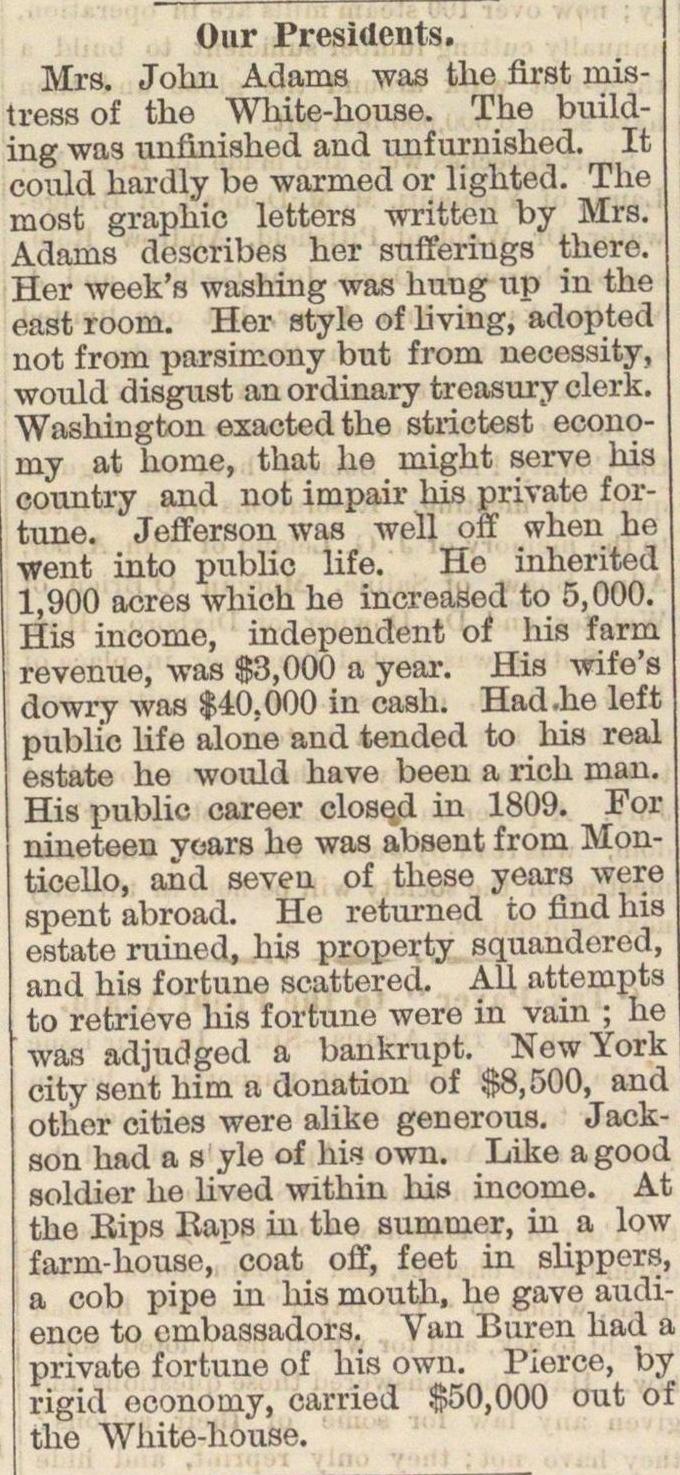Our Presidents

Mrs. John Adams was the ñrst rmsress of the Wliite-house. The buildng was unfinished and unfuriiished. It could hardly be warmed or lighted. The most graphic letters writteu by Mrs. Adams describes her sufferings there. Eer week's washing was hung up in the east room. Her style of living, adopted not from parsimony but from necessity, would disgust an ordinary treasury clerk. Washington exacted the strictest economy at home, that he might serve his country and not impair his private fortune. Jefferson was well off when he ■went into public life. He inherited 1,900 acres which he increased to 5,000. His income, independent of his farm revenue, was $3,000 a year. His wife's dowry was $40.000 in cash. Had.he left public life alone and tended to his real estáte he would have been a rich man. His public career closexl in 1809. For nineteen yoars he was absent from Monticello, and seveu of these years were spent abroad. He returned to find his estáte ruined, his property squandered, and his fortune scattered. All attempta to retrieve his fortune were in vain ; he was adjudged a bankrupt. New York city sent him a donation of $8,500, and other cities were alike generous. Jackson had a s yle of his own. Like a good soldier he lived within his income. At the Kips Raps iu the sumtner, in a low house, " coat off, feet in slippers, a cob pipe in his mouth, he gave audience to einbassadors. Van Buren had a privato fortune of his own. Pierce, by rigid econorny, carried $50,000 out of the White-house.
Article
Subjects
Old News
Michigan Argus